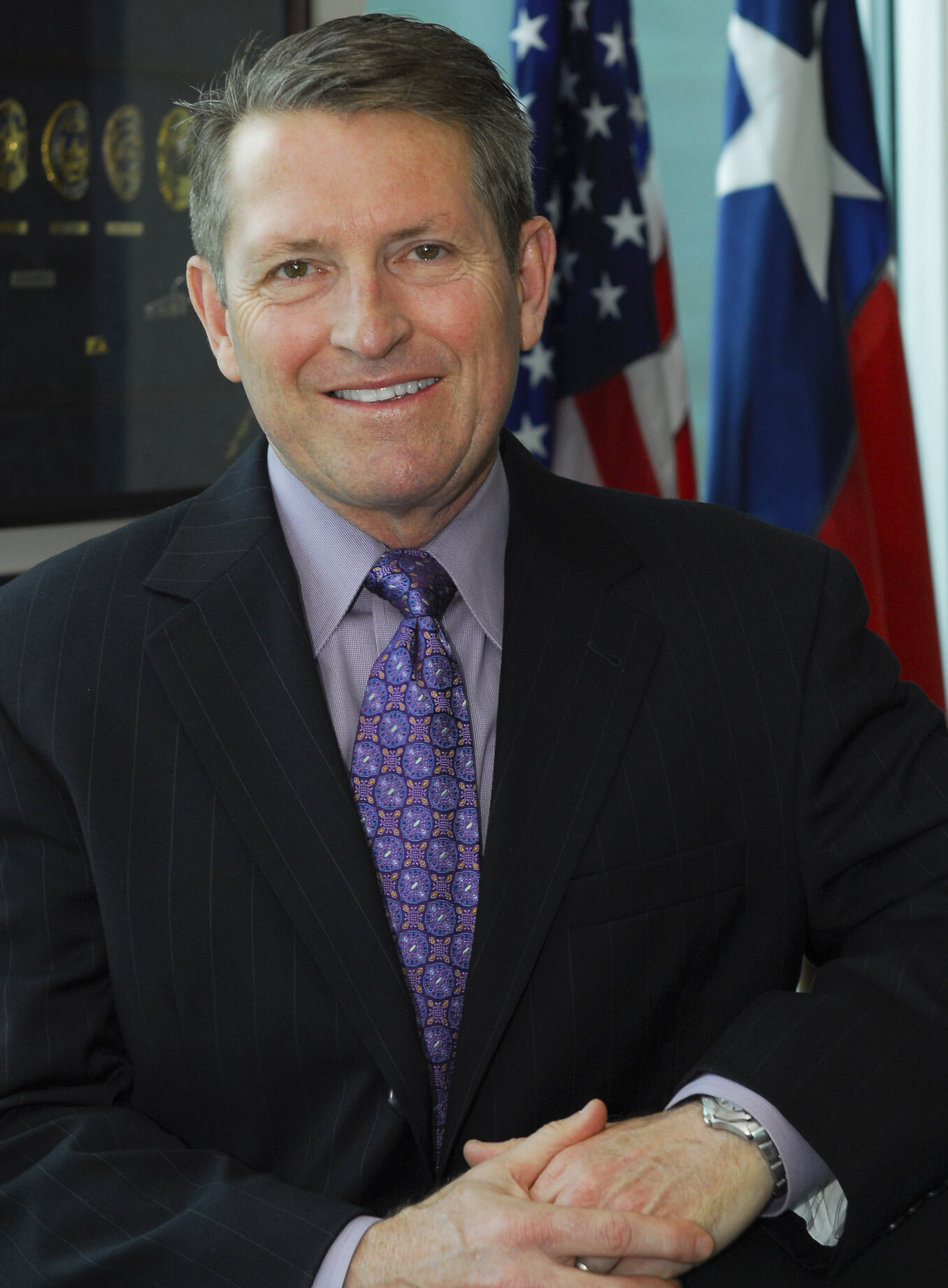Former Dallas Police Chief David Kunkle has died, WFAA reports, at least four years after being diagnosed with Lewy body dementia. He was 72.
Kunkle was hired as the 27th chief of Dallas police after the 2003 firing of Chief Terrell Bolton, whose tumultuous four years left the department reeling from a scandal involving officers planting fake drugs on Hispanic residents, rising crime, and controversial promotion practices. Kunkle began his career as a Dallas beat cop and served as chief in both Grand Prairie and in Arlington before accepting the Dallas job in 2004, which he held until stepping down in 2010. He ran for mayor in 2011, but lost to Mike Rawlings in the runoff. He spent the twilight of his career consulting and teaching at the University of North Texas.
In 2021, Kunkle and his wife, the lobbyist and former broadcast reporter Sarah Dodd, told Dallas Morning News columnist Robert Wilonsky that he had been diagnosed with Lewy body dementia in 2019. The disease is a common type of dementia, second only to Alzheimer’s disease, and occurs when protein deposits called Lewy bodies develop in the brain, hitting the regions that make it possible to think, remember, and move.
But before the disease ravaged his mind and body, Kunkle was the police chief respected by even the most experienced police reporters.
“…there has been only one chief in my experience who talked the transparency talk and walked the transparency walk and his name is David Kunkle,” WFAA’s Tanya Eiserer once wrote. Eiserer was the longtime police beat reporter for the Dallas Morning News prior to joining WFAA.
In Dallas, Kunkle inherited a department that was in disarray, and not too far removed from a fake drug scandal that found the department claiming busts for vast amounts of cocaine that proved to be fake. When he retired, the city had sustained six straight years of declining crime. Murders dropped from 248 a year when he started the job to 148 when he walked out of Jack Evans Police Headquarters.
He was also responsible for banning the practice of choke holds, demoting or reassigning people that Bolton had promoted who may have been under-qualified, and disciplining officers who had a history of repeated Internal Affairs complaints. Those actions—which happened at the very start of his tenure—led to some criticism from cop unions like the Latino Peace Officers Association and the Dallas Police Association, which felt that banning choke holds meant that Kunkle caved to political pressure from the city’s Black leaders. Black officers in turn were worried about how they’d be treated as Kunkle reviewed internal investigation files, saying the department had a history of singling out people of color for discipline at a rate disproportionate to White officers.
He implemented the use of Tasers to reduce in-custody deaths, enacted a strict car chase policy that barred officers from engaging in high-speed pursuits, secured a $15 million grant that paid for dash cams and laptops in police cars, and began using crime mapping to better allocate officer resources across the city.
Mayor Eric Johnson said Friday that Dallas “is a stronger city” because of Kunkle. “Chief Kunkle’s service saved lives and set a new standard for police leadership across the nation,” he said in a statement. “He will be remembered always for his dedication to keeping Dallas residents safe.”
Dallas City Councilman Omar Narvaez said Friday that he counted Kunkle and Dodd as good friends.
“He was a quiet man and always listening. He told some really great stories and was actually very funny, too. I so so so enjoyed spending personal time with him over meals,” Narvaez said. “I was so blessed to get to know this great man, this son of Dallas, this amazing police chief, and most importantly a great friend.”
After running for mayor, Kunkle was hired by RAND Corp. as a consultant. He helped other cities understand how to modernize crime fighting and create relationships with communities to reduce violence, something that was the hallmark of his tenure in Dallas. He also taught a criminal justice course at the University of North Texas.
By the time he retired, former Mayor Laura Miller said what impressed her was his humility.
“You also had a sincere desire to incorporate best practices from all over the country, with no pride of authorship,” she said in a joint KERA interview. “You didn’t care who thought it up. You always gave them credit. You just wanted Dallas to benefit from it.”
Kunkle said in 2009 that he had accepted the job as chief knowing he would leave within five years or so. “The chief’s job tends to eat everybody up, and I wanted, if I could, to leave with dignity …” he told the Dallas Observer, reflecting on the decision. “When I told people about the job at the beginning, I said, ‘Nobody got out of that job alive.’ I just felt it was the right time for me personally, and it’s a benefit to the department to have somebody new with a clean slate and with all of the hope and optimism that occurs when somebody starts in a new position with new ideas.”
Funeral arrangements have not yet been announced.
Author






